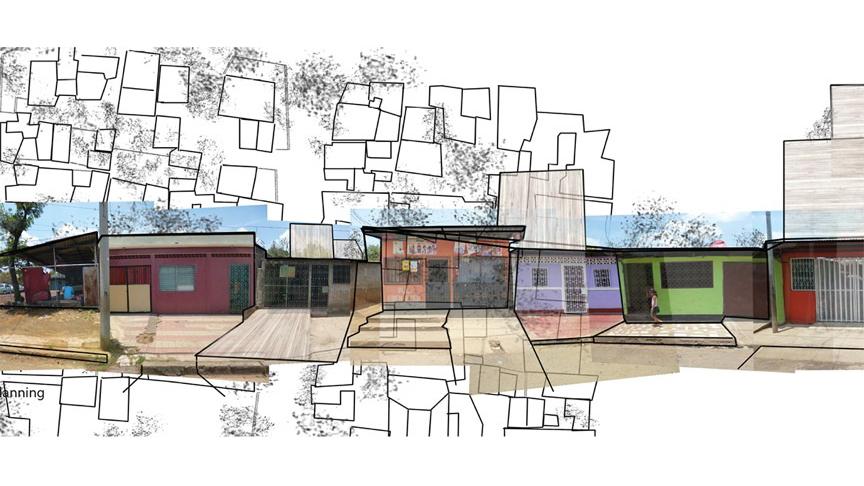3835 Campus Drive
Architecture Building (145 ARC)
College Park, MD 20742
United States
Thanks to Roland Krebs, Urban Planning Consultant for the Emerging and Sustainable Cities Initiative (ESCI) at the Inter-American Development Bank in Washington, D.C., there is a new exhibition on display on the Mezzanine level above the Great Space. “La Candelaria - Barrio Progreso,” running in conjunction with the symposium “Conflict and Convergence: Urban Informality in Latin America,” is on display now through Wednesday, October 9, 2013.
La Candelaria is a historic neighborhood in the city center of Managua, capital city of Nicaragua. After the 1972 earthquake the area was completely destroyed and devastated and then neglected till the mid nineties, when the first squatters came to this neighborhood around the train-station and brought life to the former city center. In the frame of the academic project, urban managua, an International Urban Design Laboratory (UDL) was held April 6–20, 2013 in Managua. Students and professors of both Universidad Centroamericana (UCA) and Vienna University of Technology (TU WIEN) worked together with the Instituto de Estudios Interdisciplinarios (IEI) on an interdisciplinary urban design concept for the improvement of the precarious Informal Settlement Barrio La Candelaria in Managua.
urban managua (UM) aims to introduce creative urban development tools and innovative methodologies in urban studies into the curriculum of architecture and related disciplines (urban sociology, history, etc.) at Universidad Centroamericana (UCA). A main objective is the integration of academic, practical and socio-cultural approaches and the response to the needs/demands for improved living conditions in spontaneous human settlements (SHS) in the central urban area of Managua, Nicaragua. Over a two-year period, the project has three interrelated specific objectives. First, UM aims to strengthen educational and applied research skills in the academic curriculum of urban planners and researchers through an interdisciplinary partnership between the UCA, IEI, UT Vienna and other primary stakeholders in this field. Integrated Urban Development Studies (IUDS) will be introduced and institutionalized in UCA’s urban studies discipline and will allow for an integral and interdisciplinary urban planning approach that is demand/needs-driven and community-based. A second objective is to foster a permanent South-South dialogue between academics and practitioners to strengthen the relation and cooperation between urban planning academics (“know why”) and practitioners (“know how”) on a national and regional (i.e. Central- and South American) level. Third, the project will also contribute to improving the local livelihood conditions of the families of Barrio La Candelaria, an informal settlement in the mere center of Managua where the student workshop and accompanying academic research will take place throughout the project. Important is a Participatory Development Approach (PDA) on a local level throughout the project, which implements cultural activities to promote the local community’s inclusion in the planning and research processes, thereby strengthening their sense of project ownership. The aim is therefore not only a theoretical one but also a specific contribution to poverty alleviation.

